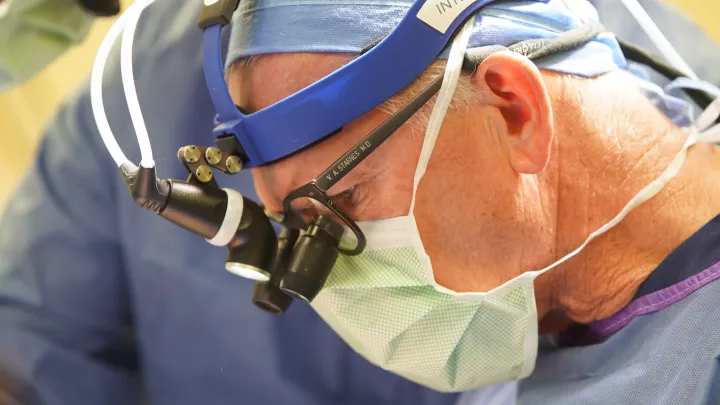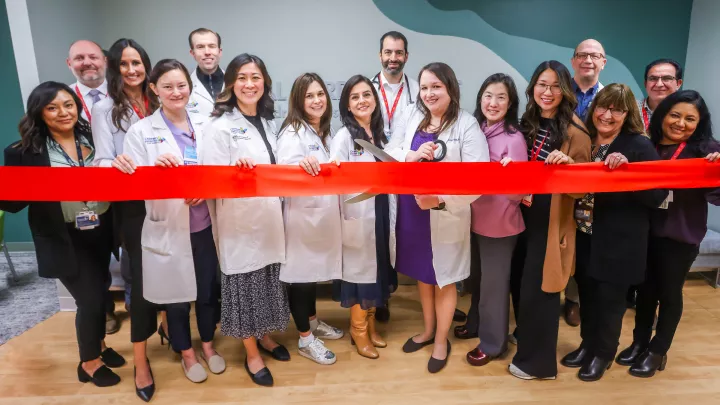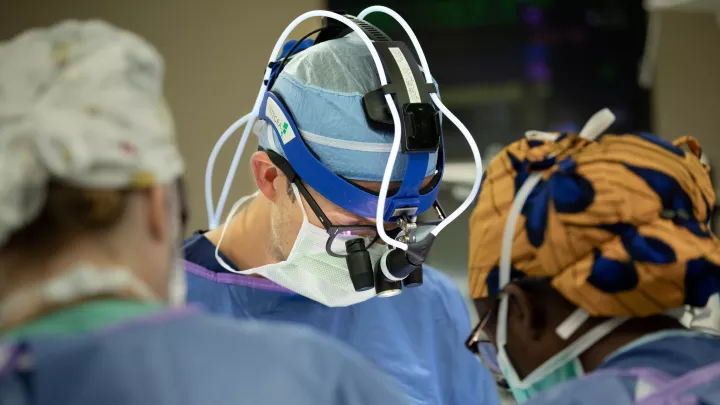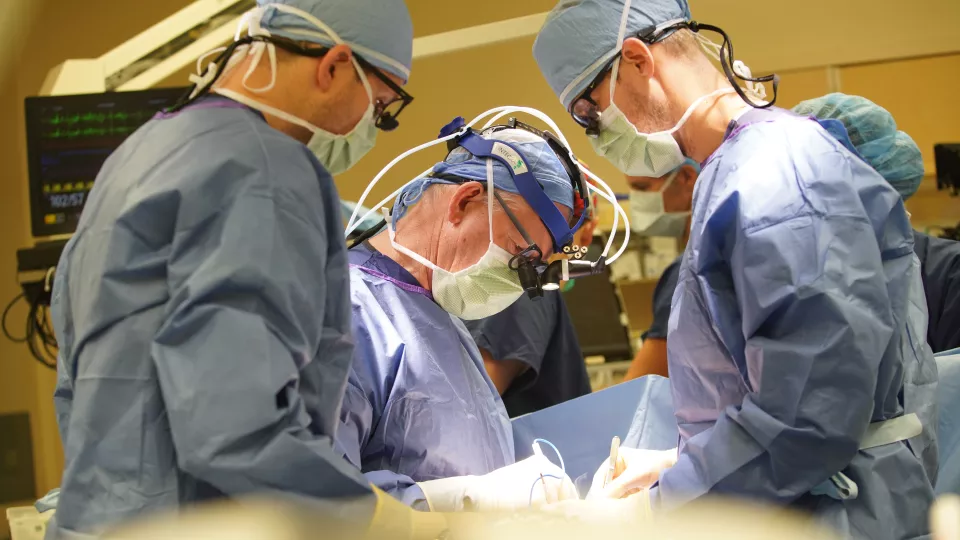
Heart Institute Co-Director Vaughn Starnes, MD, center, in the operating room with CHLA heart surgeons
How Will New Pediatric Heart Surgery Guidelines Impact Care?
Every year, more than 40,000 patients in the U.S. undergo congenital heart surgery. But across centers, studies have shown that there can be significant variations in outcomes for these patients.
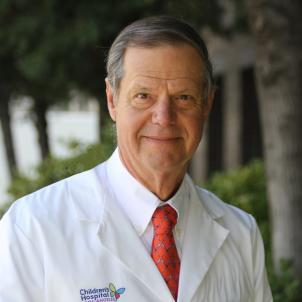
To ensure that all children receive the best care, a group of leading experts across the country collaborated to create new, consensus recommendations for hospitals performing pediatric heart surgery.
Among those experts was Winfield Wells, MD, a longtime congenital heart surgeon at Children’s Hospital Los Angeles. Dr. Wells co-authored the guidelines - Opens in a new window, which were published in September in three top cardiac surgery journals.
“It takes an extensive amount of infrastructure to safely and successfully perform pediatric heart surgery, especially in babies born with complex and life-threatening defects,” says Dr. Wells. “There was a critical need to define that infrastructure in a very detailed and evidence-based way. That’s what this document does, and it does it really well.”
Two types of centers
The comprehensive guidelines are the first to be issued in the U.S. in more than 20 years. This effort follows the earlier creation of American Board certification for congenital heart surgeons. In 2008, CHLA became the first center to provide this specialized training and now has six congenital heart-certified surgeons on its faculty.
The new guidelines cover 14 areas of pediatric heart surgery care, including surgical volume and capabilities in anesthesiology, intensive care, cardiac catheterization and more.
Specifically, the group defined two types of pediatric heart surgery centers and minimum capabilities for each:
- Comprehensive Care Centers should perform at least 200 surgeries a year and have extensive, dedicated teams and resources to provide complex, high-risk heart surgeries (such as the Norwood procedure and heart transplants).
- Essential Care Centers should perform at least 75 cases a year—translating to an average of less than two cases per week. These centers need to have the resources to successfully provide less-complex surgeries, such as closing atrial and ventricular septal defects.
“Although case volume is one of many metrics, it’s an important one,” Dr. Wells explains. “Studies have shown a connection between surgical volume and outcomes. Without sufficient volume, it’s very challenging to maintain the experience and expertise to provide these babies and children with the best care.”
The group’s review found that:
- Nearly half (44%) of centers performing pediatric heart surgery handle fewer than 150 cases a year.
- Roughly 15% of centers do not meet the 75-case threshold for essential care centers.
- Two-thirds of pediatric heart surgeries take place in centers that are within 25 miles of each other.
The committee recommended that all Essential Care Centers form at least one partnership with a Comprehensive Care Center.
“A child should not have to undergo a high-risk, complex surgery at a low-volume center,” Dr. Wells says. “Most of the time, a program with far more experience and resources is just a few miles away.”
The need for dedicated teams
Under the guidelines, Children’s Hospital Los Angeles would qualify as a Comprehensive Care Center.
The Heart Institute at CHLA is a premier, high-volume center that is renowned for performing the most complex congenital heart surgeries and achieving excellent outcomes. For example:
- CHLA performs approximately 600 major pediatric heart surgery cases a year, as defined by the Society of Thoracic Surgeons (STS). This is three times the minimum volume recommended for Comprehensive Care Centers.
- More than 20% of CHLA’s heart surgery patients are neonates (newborns less than a month old).
- More than 50% of CHLA’s neonatal heart surgeries fall under the highly complex STAT 4 and STAT 5 categories from STS.
One of the keys to this success is the Heart Institute’s vast, experienced team. In addition to having two attending cardiothoracic surgeons for each surgery, the program’s cardiologists, anesthesiologists, nurses, critical care physicians, perfusionists and more are all dedicated specifically to pediatric cardiac patients.
“That team is critical to support babies and children undergoing highly complex heart surgeries,” Dr. Wells says. “The surgeons are important, but they are only one piece of a much larger effort.”
The new guidelines stress the significance of those teams. For Comprehensive Care Centers, the report recommends at least three Board-certified congenital heart surgeons on staff, plus a long list of specialized team members who are immediately available—including anesthesiologists, critical care physicians, cardiologists, dedicated operating room and intensive care nurses, an extracorporeal membrane oxygenation (ECMO) team and more.
Endorsed by national medical societies
Dr. Wells notes that the process for compiling the report was exhaustive. Beginning in March 2021, the committee met every other week by Zoom for two years. Recommendations and data points have been backed by peer-reviewed studies.
In addition, 15 national medical societies representing specialists on the care team participated in the effort and endorsed the final report. These include the Congenital Heart Surgeons’ Society, Society of Thoracic Surgeons, American Association for Thoracic Surgery, American College of Cardiology, American Heart Association and more.
He adds that the guidelines will provide much-needed clarity for surgeons, physicians, nurses and hospitals—helping them to allocate and advocate for key resources. He also envisions the potential for a review process that could certify centers as Comprehensive or Essential.
“That would help families who are seeking care for their children,” Dr. Wells says. “The bottom line is that we want each child to receive the best possible care. That is what this whole effort is all about.”
